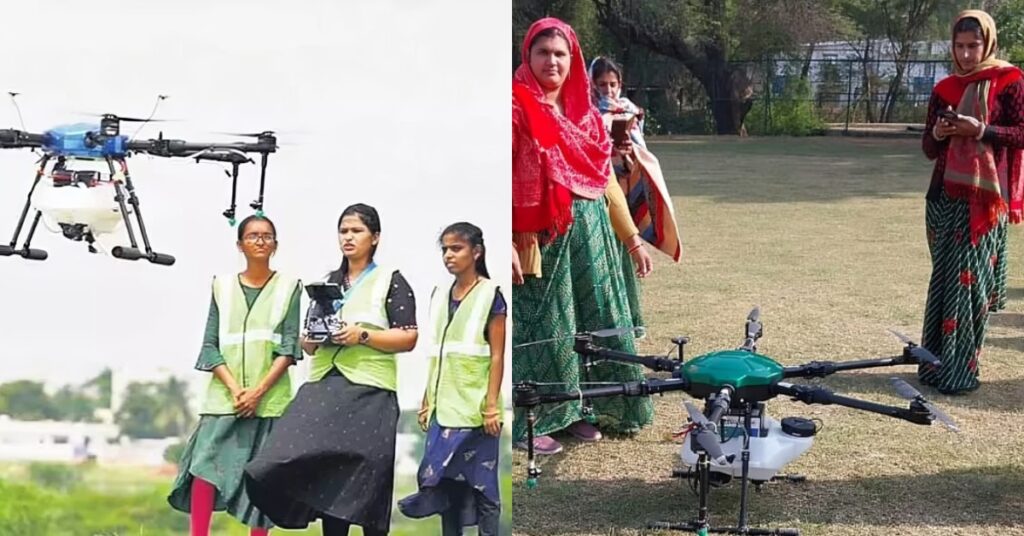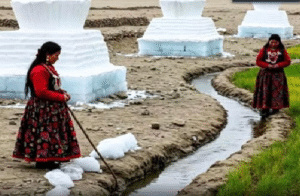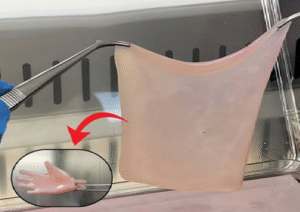In the early hours of a quiet morning in Pataudi, Haryana, the buzz of a drone pierces the stillness as 35-year-old Sharmila Yadav expertly guides it across golden fields. Once a full-time homemaker, Sharmila has now become a certified drone pilot, transforming not just her own life, but also the way farming is done in her village.
“Flying was always my dream,” Sharmila says with a smile. “I just never imagined I’d be flying over crops instead of clouds.”
Wearing protective goggles and gripping a controller, Sharmila uses high-precision drones to spray fertilisers across vast farmlands — a job that once took hours of manual labour now completed in mere minutes. The transition from traditional farming to tech-assisted agriculture represents a growing trend across rural India, but Sharmila’s story stands out.
Until recently, she, like many rural women, worked long hours in the fields with little recognition. That changed when she enrolled in a five-week drone pilot training programme, specifically aimed at empowering women in agriculture. Since then, she has piloted drones across 150 acres, earned Rs 50,000, and — perhaps most notably — earned a new title in her village: “pilot.”
Her success is inspiring a new wave of rural women to embrace agri-tech, proving that innovation isn’t limited to urban labs — it can take root in the fields, too.
Local officials and agricultural leaders have applauded her efforts, calling her a trailblazer for women in precision farming. Plans are now underway to expand the training programme to nearby districts, with Sharmila invited to mentor the next group of aspiring women pilots.
Her flight may not have taken her to the skies, but in the eyes of her community, Sharmila Yadav is soaring higher than ever before.







